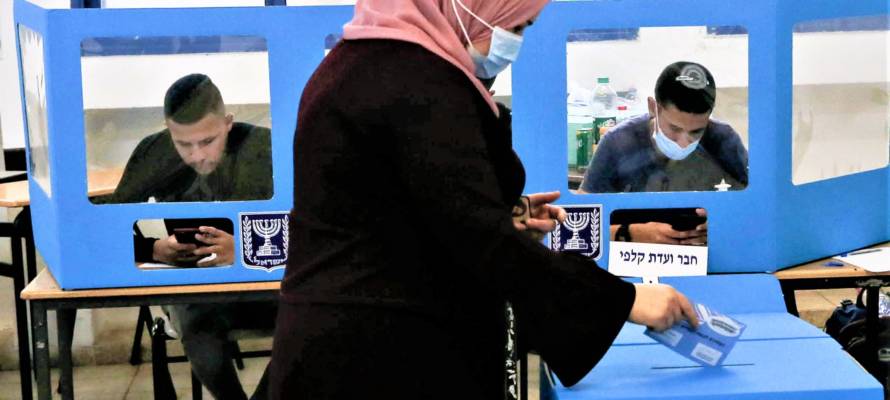While no candidate or party has emerged as the clear winner in Israel’s latest elections, the Jewish state’s robust democratic process remains a beacon in the Middle East.
By United with Israel Staff and AP
While uncertainty hovered over the outcome of Israel’s parliamentary election Wednesday, with both Prime Minister Benjamin Netanyahu lacking a clear path to a governing coalition, Israel’s democratic process emerged as the clear winner.
In order to form a new government, the sitting prime minister will need to create a coalition of at least 61 seats out of the Knesset’s 120.
According to most commentators, Netanyahu’s Likud party and his religious Zionist allies will need the support of Naftali Bennett’s right-wing Yamina party.
Meanwhile, an Arab party emerged as a potential kingmaker on Wednesday morning.
Contrary to false claims that Israel is an “apartheid state,” Arab citizens enjoy full rights and serve as elected officials in the nation’s parliament.
Like Bennett, the head of the Arab Ra’am party, Mansour Abbas, has not ruled out joining either camp vying for control of the Knesset.
A fifth election also remains an option if neither camp can form a coalition. In that case, Netanyahu would remain a caretaker prime minister heading for a confrontation with U.S. President Joe Biden over Iran.
The results signal a continuing shift of the Israeli electorate toward the right wing, which supports Jewish communities in Judea and Samaria and opposes concessions in peace talks with the Palestinians.
After three previous inconclusive elections, Netanyahu had been hoping for a decisive victory that would allow him to form a government with his traditional religious and nationalist allies.
During the campaign, Netanyahu emphasized Israel’s highly successful coronavirus vaccination drive. He moved aggressively to secure enough vaccines for Israel’s 9.3 million people, and in three months the country has inoculated some 80% of its adult population. That has enabled the government to open restaurants, stores and the airport just in time for election day.
He also pointed to the four diplomatic accords he reached with Arab countries last year.
After the election results come in, attention will turn to the country’s figurehead president, Reuven Rivlin.
He will hold a series of meetings with party leaders and then choose the one he believes has the best chance of forming a government as his prime minister-designate.
As this latest round of elections proves, in which orthodox Jews, Arabs, and secular Israelis all made their voices heard, Israel remains the only pluralist representative democracy in the Middle East.
